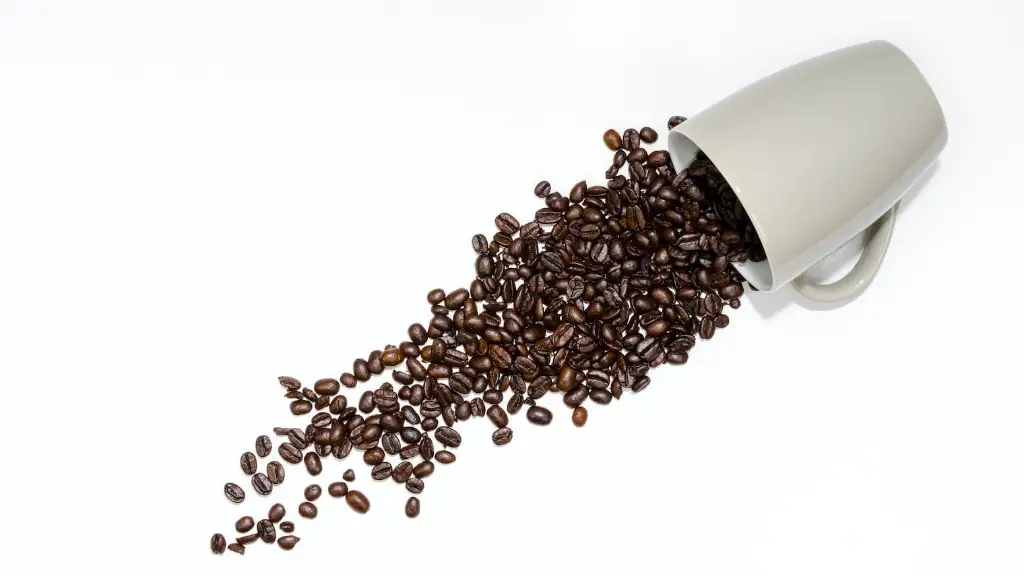Effects on the Body
Caffeine, the active ingredient in coffee, is a stimulant and can, in high doses, create a jittery feeling in an individual. Caffeine prevents the buildup of adenosine, an inhibitory chemical produced by the body, and increases the flow of dopamine and norepinephrine, two stimulatory brain chemicals. As a result of this, coffee consumption can induce a stimulatory state of awareness and mental alertness. Additionally, coffee consumption can speed up the metabolism and increase your blood pressure, both of which can contribute to a jittery sensation.
Michael Sousa, a professor of clinical psychology at San Francisco State University, explains that caffeine can overstimulate our body’s fight-or-flight response. He notes, “Caffeine primes the brain to be more alert and responsive in situations where our body might feel threatened or vulnerable.” Our fight-or-flight response is our body’s protective response to perceived danger, which can result in an increased heart rate and rapid breathing. Sousa suggests that, if we are not actually in danger, the response may cause us to feel confused, anxious, and jittery.
Coffee Consumption & Sensitivity
The extent to which one feels jittery after drinking coffee can depend on how much coffee is consumed and how sensitive one is to its effects. According to Mayo Clinic, the average adult can safely consume up to 400 milligrams of caffeine daily. Caffeine sensitivity can also vary from person to person, based on factors like age and genetic makeup.
This is confirmed by Mayo Clinic neuropsychologist Dr. Donald Condie. Dr. Condie explains that a person’s genetic makeup affects how their body metabolizes caffeine and thus the extent to which they experience its effects. He notes that, if a person carries certain genetic mutations, their body metabolizes caffeine faster, meaning they may be more susceptible to feeling jittery. He further explains that, if one carries certain genetic traits, they may have a lower tolerance for caffeine and thus react more dramatically to it.
Lifestyle Choices & Habits
The amount of coffee one drinks and how they feel after drinking it can also be affected by one’s lifestyle and habits. A study by Sousa suggests that those who are already in an anxious or stressed state may be more likely to feel jittery after drinking coffee. This can be due to the stimulatory effects of caffeine making these already heightened emotions more powerful.
Additionally, psychiatrist William Feurich tells WebMD that having a few drinks of alcohol before drinking coffee in the morning can increase one’s susceptibility to feeling jittery. Feurich suggests that having even a small amount of alcohol before consuming caffeine can significantly increase its effects, thus making one more likely to become jittery.
Tips to Reducing Jitters
Feurich suggests some helpful tips to reduce the amount of jitters one may feel after drinking coffee. Firstly, he recommends keeping track of how much caffeine you consume each day and not exceeding 400 milligrams. He also suggests avoiding sugary coffee drinks and other foods that contain hidden sources of caffeine, such as certain energy bars. Additionally, Feurich recommends controlling alcohol consumption, as this can affect the way your body metabolizes caffeine and increase its effects.
Finally, he suggests reducing stress and anxiety before drinking coffee. Taking a few minutes to practice yoga, meditation, or deep breathing can help to reduce any already existing anxiousness and make it less likely for one to experience the jittery sensation upon drinking caffeine.
Alternative Drinks
If you still find yourself having jitters after drinking coffee, there are a few alternatives you can try. Decaf coffee is one option. The process of decaffeination removes most, if not all, of the caffeine from coffee beans, making it less likely for one to feel jittery after consumption.
Additionally, herbal teas are also a great option for those who still seek the stimulatory effects of coffee without the anxiety. Various herbal teas contain ingredients such as yerba maté, matcha, and guarana which offer a mild form of stimulation, while providing important vitamins, minerals, and antioxidants.
Rooibos, or red tea, is another great alternative. Rooibos contains no caffeine and is jam-packed with many compounds, such as aspalathin, which according to a study can help reduce stress and anxiety levels. Finally, chamomile tea is another great option for those looking for some relaxation and calm.
Effects on Performance & Memory
A study conducted at the University of Toronto found that drinking too much coffee can have negative effects on one’s performance and memory. The study focused on measuring cognitive performance while consuming various amounts of caffeine. It found that, while smaller amounts of coffee consumption can improve performance, having too much can cause a decline. This, according to the study, can be due to the jittery feeling that often accompanies the stimulatory mental and physical effects of caffeine.
An article in the Harvard Medical School blog confirms these findings. The blog post explains that, while small amounts of caffeine can boost one’s focus and alertness, too much can cause agitation, restlessness, confusion, insomnia, and even anxiety. Taking too much caffeine at once can, according to the blog, cause one to be less focused and even impair one’s memory.
Effects on Long Term Health
In addition to its short-term effects, heavy coffee consumption can also have detrimental effects on one’s long-term health. According to the Mayo Clinic, heavy coffee consumption can lead to a variety of health concerns, such as heart palpitations, depression, sleeplessness, headaches, physical addiction, and digestive issues.
The Cleveland Clinic also points out that too much caffeine can worsen existing health conditions, such as high blood pressure and insomnia. An article published by Forbes also highlights the risks associated with heavy coffee drinking, explaining that five or more cups of coffee a day can increase the risk of heart disease, depression, and bladder cancer. The article further notes that one should talk to their doctor before drinking any amount of coffee or caffeine, as it could interact negatively with certain medications and supplements.
Effects on Pumped & Jittery Feelings
The stimulatory effects of caffeine can cause one to feel both pumped and jittery. While this is a normal feeling that much of us experience from time to time, one should be aware of the potential risks of heavy caffeine consumption.
Not only can large amounts of caffeine have negative effects on performance and memory, but it can also have potentially serious health risks. So, while drinking coffee in moderation can give us the short-term benefits of increased alertness, focus, and energy, it is important to consume coffee mindfully, so as to avoid any potential negative effects it may have on the body and mind.
What Happens if We Combine ALCOHOL & Coffee?
Consuming coffee when one is under the influence of alcohol can have severe consequences. Firstly, one’s cognitive abilities can be affected, as alcohol can reduce alertness, while coffee has the opposite effect and can temporarily increase alertness. This can create a confusing and dangerous situation, as a person may lack any insight into their own judgment and behavior.
Alcohol also increases the effects of caffeine, making the user more sensitive to its effects and thus more likely to feel those dreaded jitters. Additionally, the combination of these two stimulants can increase the risk of heart, digestive, and nervous system issues, as well as agitation, anxiety, and insomnia.
Optimal Time To Drink Coffee
Having coffee too close to bedtime can cause difficulty sleeping and restlessness. A study by Harvard Medical School suggests that, for the greatest benefit, one should limit their coffee consumption to before noon. It explains that, due to the half-life of caffeine being 4-6 hours, having coffee after this time can lead to difficulty sleeping due to its stimulatory effects.
The study further suggests avoiding having coffee late in the afternoon or later in the evening to avoid sleep disturbances. However, its findings note that, while most people feel the effects of coffee within 15-45 minutes of its consumption, this time frame can be different for each individual. Thus, it may be beneficial to figure out when one personally begins feeling the effects of caffeine and then adjust their coffee timing accordingly.
Mindful Choices & Coffee Consumption
Coffee can bring us many benefits, such as increased focus and energized feelings. However, it is important to be mindful of our individual sensitivity to the effects of caffeine and the potential risks of consuming too much of it. Before having any coffee, it is helpful to consider factors such as our own sensitivity to caffeine, whether we are already feeling anxious or stressed, and how close it is to bedtime. Additionally, we should avoid having any combination of alcohol and coffee.
By being mindful of our own individual needs and tempering our coffee consumption accordingly, we can have the benefits of coffee without the dreaded jittery feelings.


